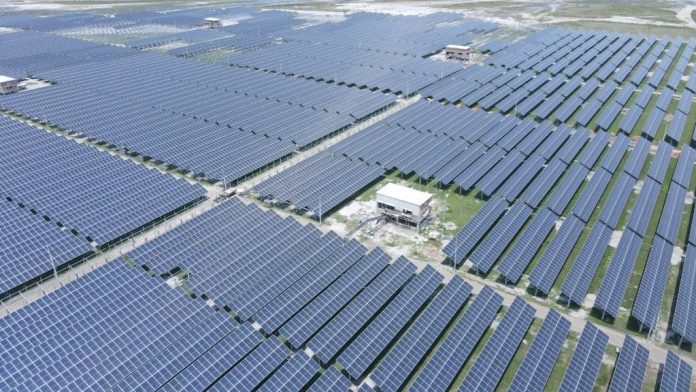Overcapacity has become a burden for Bangladesh’s power sector, making the system inefficient and contributing to the soaring generation cost, said the Institute for Energy Economics and Financial Analysis (IEEFA) Lead Energy Analyst Shafiqul Alam.
He raised concerns over the growing dependence on imported fossil fuels in the last four or five years as Bangladesh eventually started to feel the pinch stemming from the Ukraine-Russia crisis-driven turbulence in the international energy market.
The situation further worsened due to the devaluation of the local currency by a significant margin, leading to a shortage of foreign currency reserves. This hindered the import of fossil fuels to run power plants as required.
This correspondent talked to Shafiqul Alam, a prominent energy economist and lead energy analyst at Institute for Energy Economics and Financial Analysis (IEEFA), about the upcoming challenges in the power and energy sector.
He suggested addressing some major issues including, among others, demand side management, proper utilisation of power generation, promotion of renewable energy, and local gas exploration.
No alternative to the demand management
While there is a short-term relief during the winter, power demand will rise from March 2024. This will again create pressure for a special management of the sector.
As the challenges of foreign currency reserves will likely persist in the coming months and the government needs to clear payments of several billion US dollars against the energy generated by private sector plants, a smooth supply of energy during the forthcoming summer will be a significant challenge.
As such, proper demand management would be key. The government should spearhead immediate efforts to reduce power demand through energy efficiency and conservation.
The option such as shutting down shopping malls strictly between 6:00PM and 7:00PM on working days can provide a partial relief, experts pointed out, adding that this will help reduce evening peak demand and thus minimise the use of expensive oil-run plants at night.
Containing power system overcapacity
The demand in the industry sector is not growing as expected. Many industries do not find grid power as a reliable source. Hence, the power system of the country has overcapacity beyond a reserve margin of 20 percent.
Reportedly, a good number of power plants will be commissioned in the next 2 to 3 years. During this period, nuclear power plants will likely be commissioned too. A ballpark assessment shows that system overcapacity will further increase in the foreseeable future. Even then, the signing of new contracts for fossil-fuel-based power plants will reportedly continue to take place.
System overcapacity increases inefficiency when power plants with investments in millions or billions of dollars are kept idle or operated at a lower capacity. What’s more: idle plants will shoot up capacity payments, swelling the subsidy burden.
The government, therefore, need to take a cautious approach while increasing the installed capacity of the power sector. Power plants that are only at the contract signing or LOI issuance stage could be delayed.
Renewable energy should be promoted gradually
We are experiencing a spree of contract signing for renewable energy, particularly solar energy projects. Tariffs for most solar projects hover around 9.9 US cents/kWh. With such high tariffs on solar energy, Bangladesh will not be able to harness the full benefits of renewable energy.
Understandably, developers face numerous challenges in implementing utility-scale solar projects, but Bangladesh should gradually make a shift to reverse auctions to reduce the tariffs of renewable energy projects.
Furthermore, we should consider the grid issues, especially in light of the news that some 10,000MW renewable energy projects are in the pipeline now. We should further work on developing small projects with battery storage facilities to prepare for the foreseeable future.
Exploration of own gas
Local gas has been central to the country’s development. Despite a few discoveries in the last several years, efforts in exploration of local gas have been to some extent scattershot. Given the growing dependence on LNG (liquefied natural gas) amid the rising deficit between demand and supply, local gas exploration is one area that requires more attention. To this end, the capacity of BAPEX (Bangladesh Petroleum Exploration and Production Company Ltd) should be enhanced.
It has become a norm that the power sector receives more attention than the energy sector. For instance, in the current fiscal year, the government has allocated 33,775 crores to the power division against only 911 crores to the energy division.
However, more funds should be directed towards the energy division to enhance local gas exploration, improve national energy security, and increase the energy sector resilience.
Conclusion
Of late, the government has decided to issue special bonds to pay off private sector power producers’ liabilities to the banks against the unpaid energy bills. This is a temporary relief but for all practical purposes, the government needs to cut down expenditures.
The record revenue shortfall of BPDB (Bangladesh Power Development Board) in the past fiscal year may tempt the government to raise the power tariffs soon. This move will only add to the commoners’ woes. They have been the worst hits of high commodity prices in the last one and a half years.
There is no quick-fix strategy to solve the country’s energy and power sector problems. Instead, a well-thought-out plan is essential for Bangladesh to overcome short-term challenges and ensure sustainability in the long run.
In the past, Bangladesh was able to quickly increase the system capacity to address the high demand-supply deficit of electricity and achieve 100% electricity access. Likewise, it can address energy and power sector challenges of the present and the foreseeable future. But it will require sustained efforts for years.


